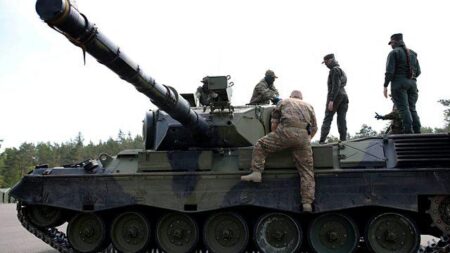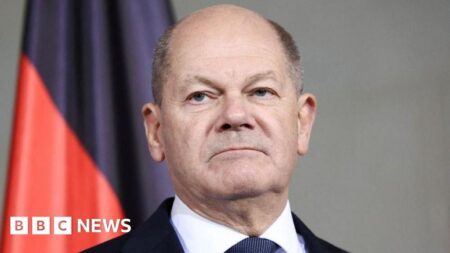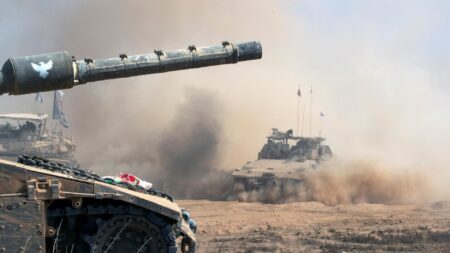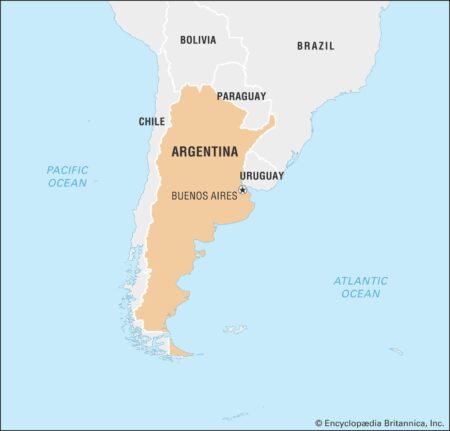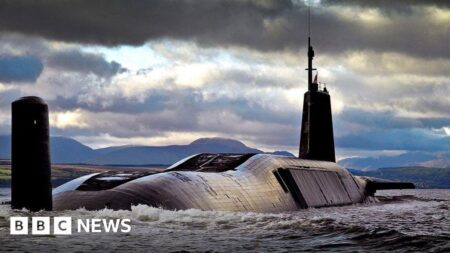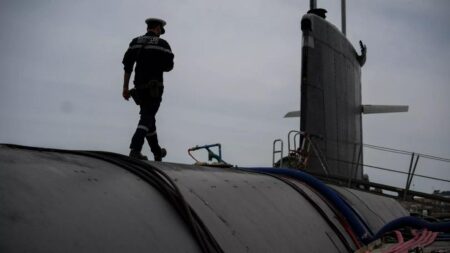Japan is stepping into the spotlight with a crucial promise to bolster Ukraine’s security, Prime Minister Fumio Kishida announced. This bold move underscores Tokyo’s growing dedication amid rising tensions in Eastern Europe
Browsing: Defense Policy
Germany has taken a bold leap forward, pledging to significantly increase military aid for Ukraine and positioning itself as a leading force in a sweeping European rearmament effort. This decisive move signals a major shift in regional defense strategies amid the ongoing conflict
Germany has announced it will halt military exports to Israel amid the ongoing Gaza conflict, expressing deep concerns over the use of German-made weapons in the war, Al Jazeera reports
Germany has slammed the brakes on arms exports that could be used by Israel in Gaza, Reuters reports. This move underscores growing concerns over the escalating conflict and signals a call for greater caution in supplying military aid
Lawmakers are urging former President Trump to stand behind the AUKUS security pact with Australia and the UK, emphasizing its vital importance in maintaining stability across the Indo-Pacific region and countering China’s expanding influence, Defense News reports
Spain’s decision to shift focus on the F-35 marks a daring strategic move shaped by both economic realities and evolving priorities. By thoughtfully balancing costs, industrial benefits, and geopolitical relationships, the government is now pursuing alternative options that hold greater promise for enhancing its defense strength
German Chancellor remains resolute in maintaining the country’s arms embargo against Israel, emphasizing the challenging balance between protecting security and defending human rights. This stance sparks passionate debate both nationally and worldwide
Spain has made a bold decision to cancel its plans to purchase F-35 fighter jets, opting instead to upgrade and modernize its existing fleet. This strategic shift highlights Madrid’s response to budget constraints and changing defense priorities, marking a new chapter in the country’s military approach
Weapon sales to Israel have been suddenly stopped following the green light for a highly controversial Gaza war plan, sources reveal. This bold move underscores mounting international concern over the escalating conflict in the region, reports Time Magazine
Israel has sharply condemned Germany’s recent arms embargo, accusing Berlin of undermining their vital defense partnership. This move escalates growing tensions over regional security and strategic cooperation
China’s most dynamic cities are fueling a powerful wave of economic growth, as Japan unveils an ambitious new space defense strategy in response to escalating regional tensions. SCMP Daily delivers the latest breakthroughs shaping Asia’s geopolitical and economic landscape
Spain remains cautious about increasing security spending despite escalating threats, opting to prioritize economic recovery and social programs for now. Yet, experts warn that this cautious approach may leave the nation exposed to serious defense risks
Argentina has boldly strengthened its military alliance with the United States, elevating defense cooperation through dynamic joint exercises and advanced training programs, the U.S. Department of Defense announced, highlighting a powerful commitment to regional security collaboration
The UK and France have launched a bold, united nuclear deterrent strategy, marking a significant leap forward in their security partnership amid rising global tensions, officials confirmed. This groundbreaking initiative underscores the strengthening defense alliance between the two countries
France and the UK have made history by signing their very first agreement to synchronize their nuclear deterrence strategies, strengthening their shared security amid escalating global tensions, officials announced Wednesday
Spain’s decision to enforce an arms embargo on Israel has sparked a fiery domestic debate, with critics questioning its impact on national interests and defense alliances. This move highlights growing tensions within Spain over its foreign policy approach to the Israel-Palestine conflict
Germany is gearing up to launch an exciting six-month voluntary military service program, officials revealed to Reuters. This bold initiative aims to bolster the armed forces amid rising geopolitical tensions, while inspiring a fresh wave of young recruits to answer the call and serve their country
Murray took center stage on CNBC to dive into the crucial changes in UK and NATO defense budgets, revealing strategic moves designed to tackle emerging security threats, as emphasized by the Atlantic Council
The UK’s F-35 procurement strategy is now in the spotlight, as it carefully balances cost, capability, and industrial benefits. Policymakers face the tough challenge of ensuring defense readiness while keeping budgets intact, unveiling a complex and high-stakes strategic puzzle
In a bold and historic move, Germany is set to build Europe’s most powerful military force. This groundbreaking shift marks a decisive break from its post-Cold War defense stance, fueled by escalating regional security threats


